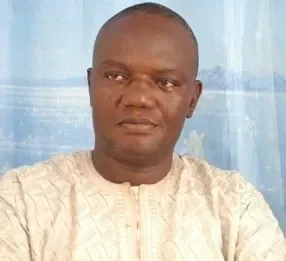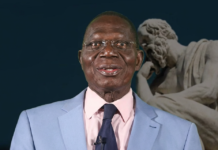By Sunny Awhefeada
Growing up, we were made to think or we naturally felt that the white race was better endowed or superior to the black race. Our parents talked about “oyibo” referring to the white man and “Inoko” referring to London with an accent that conferred sublimity on both. They gave children names that idealized and idolized “oyibo”. School also did not help matters. We were not only taught “why Africa remained a dark continent for a long time”, we took lessons that seemed to validate how the slave trade decimated Africa and how the continent fell to imperialism just before and after the Berlin conference.
The history books accentuated our failings and subjugation. The slant of what we were taught made it look as if the West came to the rescue of Africa. The lessons taught us how Europe brought civilization to Africa. Yes, we were taught about Mansa Musa, Sundiata, Es-Saheli, Ahmed Baba and the great empires of the western Sudan, Benin Empire and the likes which flourished in Africa, but they were subordinated to the influence of Europe on Africa. Europe wrote our history. Many of us were mental captives until we encountered Chinua Achebe and we knew that Africa had culture, life, philosophy, poetry, medicine, justice, and more. Besides Achebe, the Ghanaian writer, Ayi Kwei Armah made us realize that Africa’s development was arrested by slavery and colonialism.
For many of us, the supreme moment of epiphany came on reading Achebe’s “The Novelist as Teacher” where he framed what should be inscribed on the banner of Africa’s thought liberation thus: “I would be quite satisfied if my novels (especially the ones I set in the past) did no more than teach my readers that their past-with all its imperfections-was not one long night of savagery from which the first Europeans acting on God’s behalf delivered them”. These inspiring and ennobling words have long taken on the character of the manifesto of African belles-lettres.
One teacher who prodded my imagination in the direction of Achebe and the imperative of reclaiming the African condition was my history tutor in secondary school by name Mr. Godwin Awhin who died a little over two months ago. I was shaken by the news of the death of Mr. Awhin whom I came to regard as a teacher of uncommon distinction! Although he was old, having bade the world farewell at ninety and could actually be regarded as a grand old man, I never saw his death coming. I thought quite frequently about him in the last five years and it was always a delight to think about him. So, when his son Dr. Ejiro Awhin called me to announce his transition, I got numbed as I inhaled and exhaled to come to terms with the reality of his passage. There are some people you feel will not die until it happens and Mr. Awhin was one of such for me. In coming to terms with the passage of Mr. Awhin I reminded myself of a number of Urhobo sayings that are embedded in our rich ethno-philosophy. The Urhobo people rationalize the inevitability of mortality in many ways. They essentially see death as going home from the market which our forebears metaphorized as life. There are proverbs and names which adorn the soothing garb of euphemism. So, in consoling myself over the death of my good old teacher, it was to Urhobo philosophy that I turned. Instead of John Milton, I found therapy in Osokpa Omokomoko just as Johnson Adjan displaced William Shakespeare as I tried to mediate the pain of death.
Mr. Godwin Awhin was transferred to Eni Grammar School, Evwreni, in 1987 and it took only his first lesson with my class for us to know that “here was a teacher”! He had presence! Sturdy, very dark in complexion, sharp eyes, with a powerful voice, he introduced himself as “your new history teacher”. Many of us had earlier given up on history as we felt it was boring and settled for government as a subject of enrolment in the impending West African School Certificate Examination. Mr. Awhin turned the tide and changed the narrative. He taught history as if it was in the present. His stentorian voice was amplified by the sublimity of his diction. His voice rose and fell for effect. He vivified the “prowess” of Oba of Ovonramen, the “business acumen” of Nana of Ebrohimi, the “bravura” of Jaja of Opobo, the “resoluteness” of Sultan Attahiru and more. We witnessed the “race to Niki” and the “battle of Tondibi” through his words. He put history before us and it looked as if all of the past was being reborn. History was not for him a mere retelling of past events. He taught history as an ennobling enterprise, a means of self-knowledge and realization and therefore a relief from the burden of many centuries. Mr. Awhin bestrode our classroom as he taught referring to his legendary teachers at Ibadan. It was through him that names like Obaro Ikime, F. Ade-Ajayi, Omafume Onoge, Peter Ekeh, Onigu Otite, Adiele Afigbo, Tekena Tamuno came to us in the rusticity of Evwreni. Mr. Awhin was a good advertisement for the Ibadan School of History.
Beyond his brilliance was his principled and disciplined character. My generation of students was a stubborn lot and most times I laugh when I hear us complain about how stubborn the children we now begot are turning out. Mr. Awhin was ready for us. He brooked no nonsense and he was strong enough to wield the cane in a way that the bravest of boys winced when lashed by him. He curbed our deviant behavior. I remember some boys from a popular college came to enroll in our school and wanted to be pigheaded. He asked one of them what his name was and the fellow said “Don Carlos”. Mr. Awhin took one look at him and mockingly called him “Don Kanusu” and added “if I use this cane on you, you will forever live to remember me”. The boys advised themselves and behaved well throughout their stay in the school. He was gritty and some of us nicknamed him “Agrippa”. Mr. Awhin drew our attention to the dividing line between virtue and vice. He was exemplary and settled for nothing less. He made teaching infectious.
Born on New Year day in 1935, Mr. Awhin represented the ideals of his generation. Brilliant, disciplined and didactically on firm footing, he went through every rung of education from primary to the university. He settled for a teaching career which was the most prestigious in his time. He was happily married to Lady Patricia, also of blessed memory, with whom he sired thirteen children with nine surviving. Besides his white collar calling as a teacher, Mr. Awhin was an industrious farmer who could have matched Okonkwo’s farming prowess in Things Fall Apart. He was a community builder as well as a church leader. In his later years, burdened by the incapacity of old age and illness, Mr. Awhin became weak and frail and whenever I saw him I would do a flashback to the period when he taught us and after, and then shake my head about the nature of man “fading away like the stars of the morning”. My great teacher gave his all to Nigeria and now he is no more. Like every other mortal, his life reflects the words in the hymn: “Fading away like the stars of the morning/Losing their light in the glorious sun/Thus would we pass from the earth and its toiling/ Only remembered by what we have done” My dear teacher, who enabled my fascination with history, the world will not forget you! Sleep well and rest well. . Akpo kedefa oooo…..























